What is HALT?
HALT (Highly Accelerated Life Test) is developed by Dr. Gregg K. Hobbs and it is a design-improvement test method, not a qualification test method. HALT is ideally used during a product’s design phase. By this method, the designer could design a more reliable but simpler products. Product design strength will shift to unreliable area due to operating environment condition. But it is hard to simulate the aging or environment condition, therefore HALT stresses the product to failure in order to assess design robustness and margin above its intended operation.
The HALT process involves progressively higher stress levels induced by cold and hot thermal step stress, rapid temperature transitions, vibration step stress and combined thermal and vibration stress environments.
(1) Thermal Step Stress Test
(2) Rapid Thermal Transitions Stress Test
(3) Vibration Step Stress Test
(4) Combined Environment Stress Test
All the above tests were process in a HALT chamber. This chamber has temperature control which could change the temperature rapidly, it also could generate acceleration over 60Grms (10~5kHz). Before the testing, we install the thermocouples on our VX3-C100 to measure the key component temperature to make sure our device heat dissipation capacity.
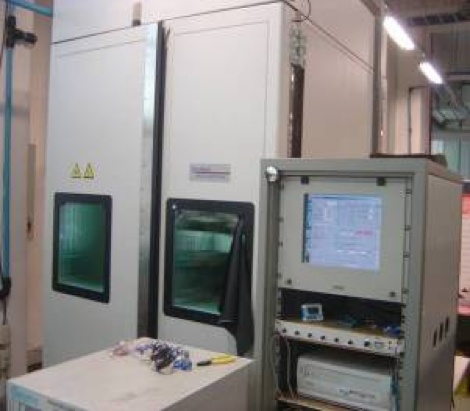
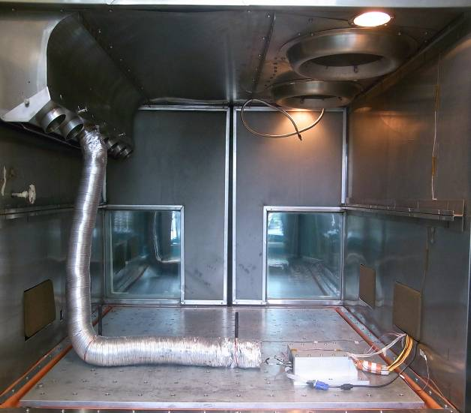
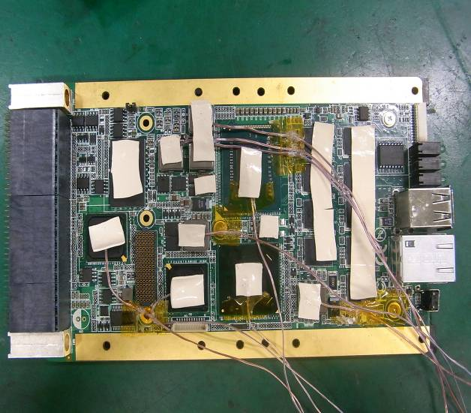
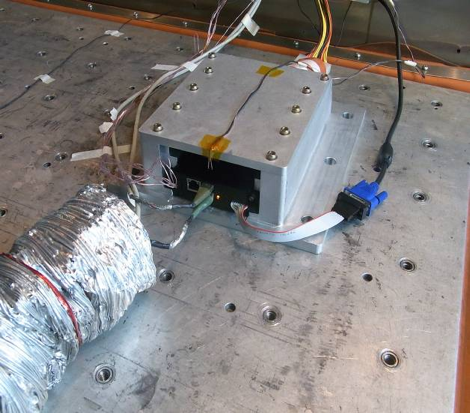
During the HALT our device were continually monitored for functionality. Our device run a test software, BurnInTest ™ V7.0 Pro (1005) for 32-bit windows, to simulate full load condition. When a failure occurred the test diagnostics logged the failure data and after HALT we will figure out what cause the failure.
Test profile:
1. Rapid Thermal Transitions Stress Test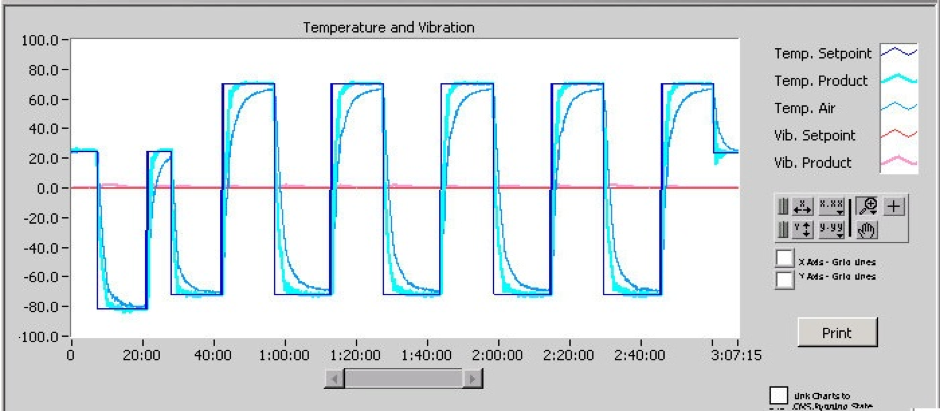
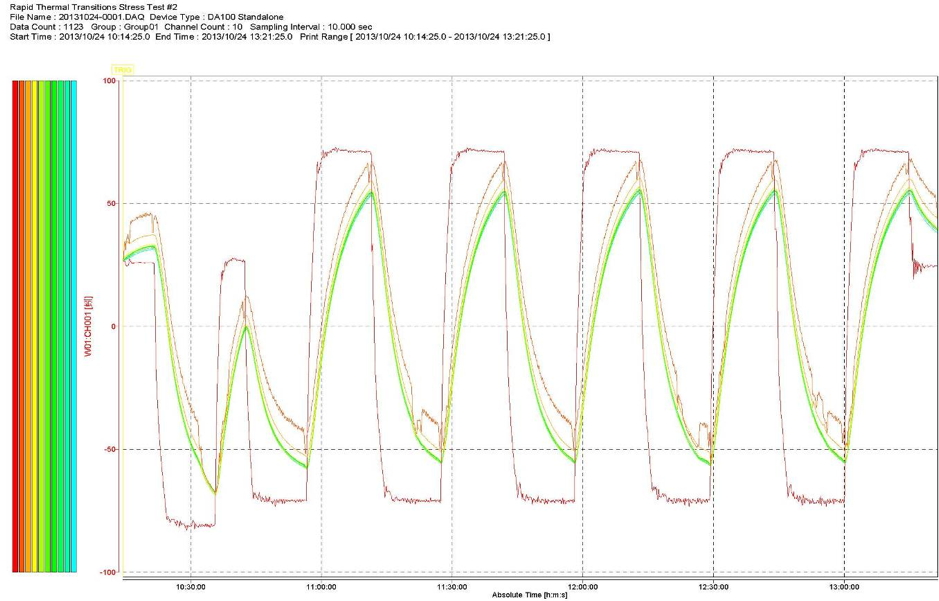
2. Viration Step Stress Test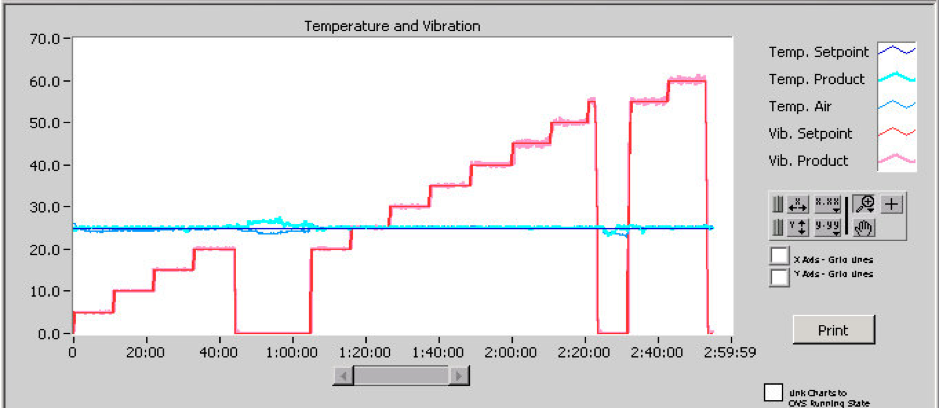
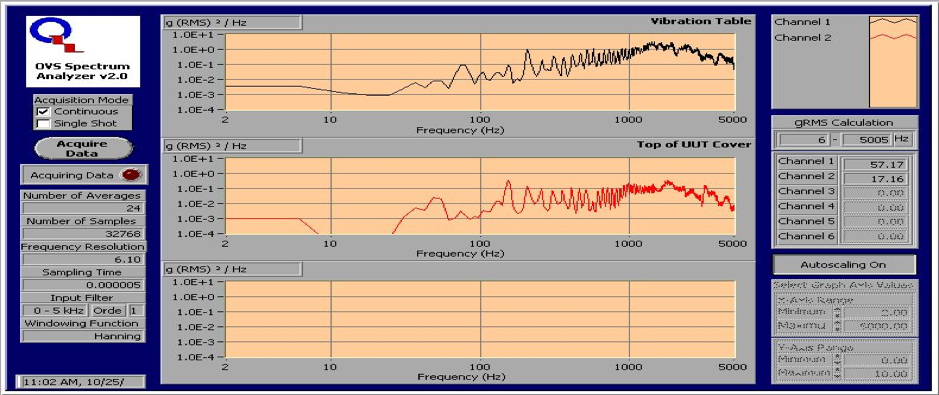
3. Combined Environment Stress Test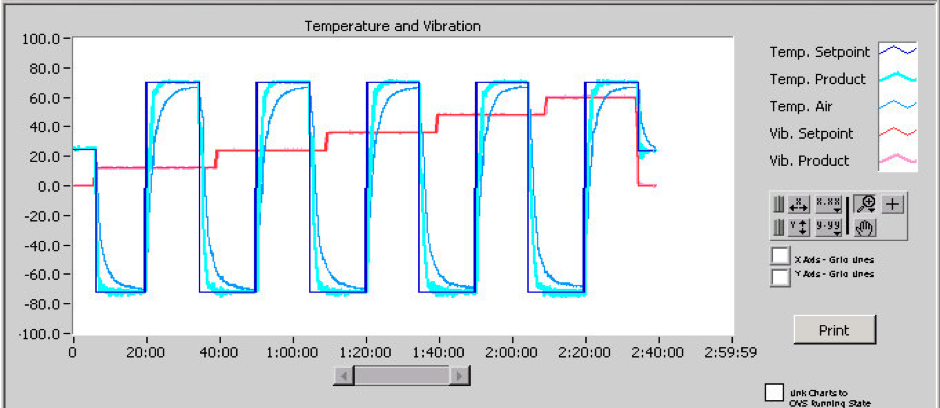
In this case study, our VX3-C100 match this HALT test.